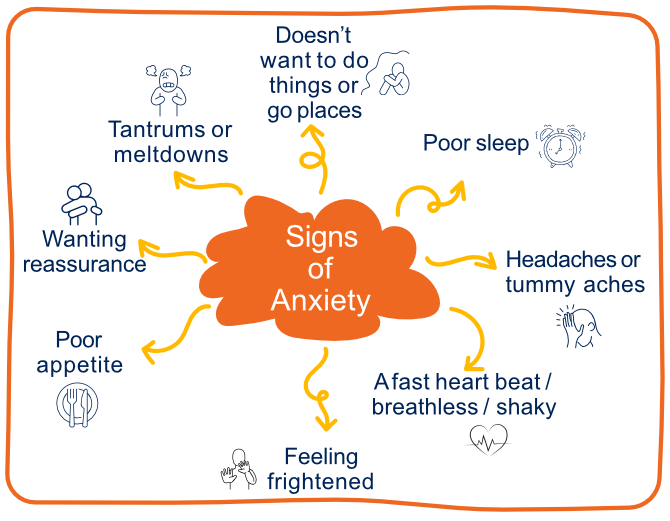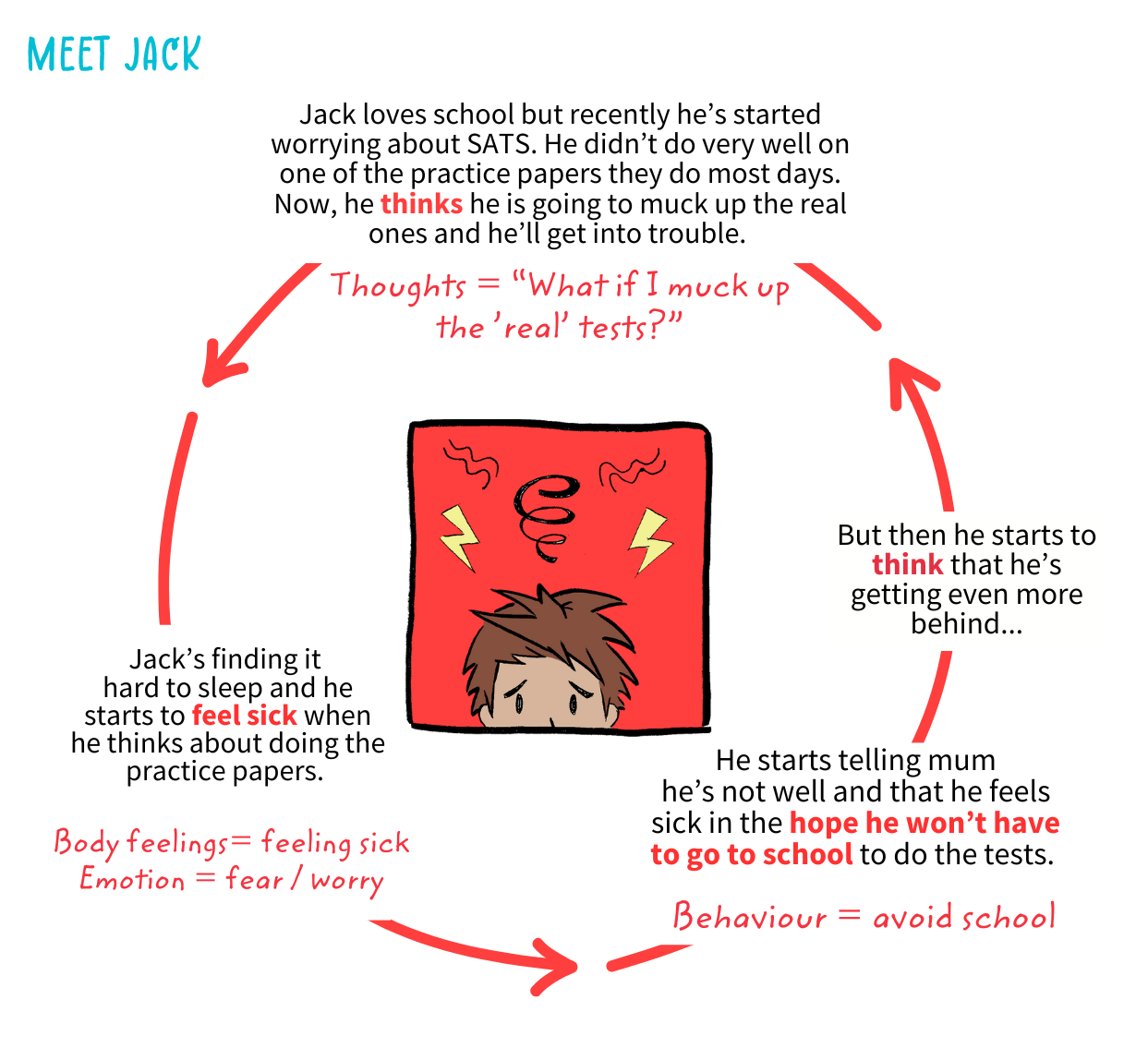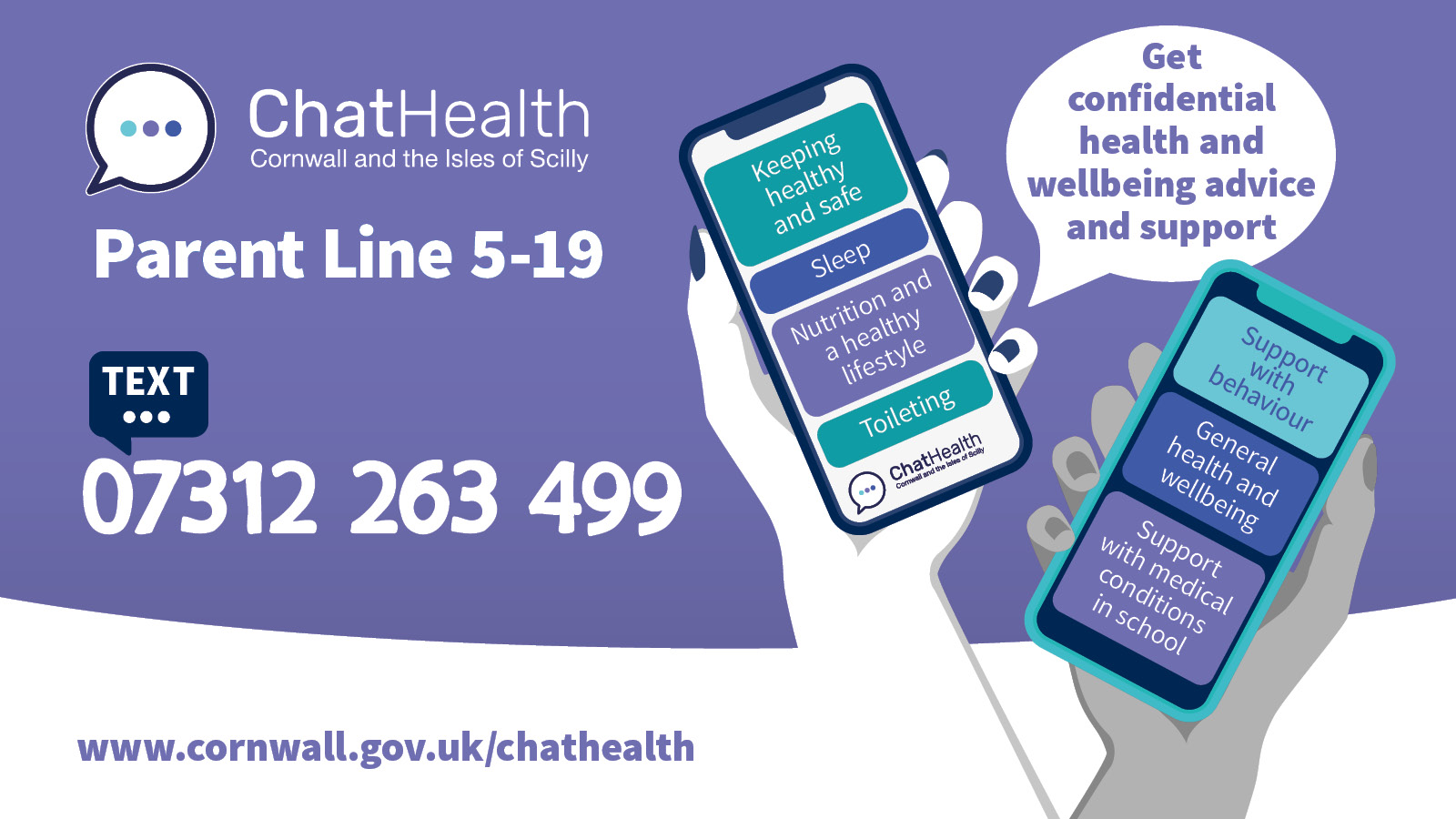What is worry and anxiety?
- Worry is when we have stressful thoughts about something, like a new school.
- Anxiety describes the feelings that can come along with worry.
- Sometimes, we feel anxious for no apparent reason.
- Anxiety can affect our thoughts, feelings and behaviour.
- Anxiety can affect our bodies too. like feeling sick, butterfilies and more.
- Anxiety activates the body’s fight-or-flight response. This means our body prepares to respond to 'danger.' It prepares to either run away or confront it.
- Primary age children often feel anxious about ‘things’. E.g. the dark, dogs, school, separation from parents and more.
- Feeling anxious at times is a normal part of everyday life for all of us.
- Anxious feelings are usually normal responses to stress. They ease, quite naturally, with time.
- It can become difficult when anxiety doesn't ease. It can impact a child's daily life and stop them from doing things they want to, including going to school.
Some signs of anxiety

What anxiety might look in primary school aged children (5 to 11 years)
"They become more aware of ordinary and extraordinary dangers but may not possess the resources and problem-solving skills to be able to overcome and manage those fears (through the news; overheard adult conversations; family conflict; illness; death). They also have much greater imagination, including the capacity to imagine the worst case. They may experience anxiety, in ways that are readily recognised: worrying; feeling sick; butterfly tummy; constantly seeking reassurance; being afraid of many things (that are not dangerous); constantly fearing the worst; irritable; demanding; need to keep checking things; feeling overwhelmed by negative thoughts."
From Managing Anxiety Problems Practical guidance for schools in Cornwall and the Isles of Scilly by Dr Lynette Rentoul
Anxiety - Feelings, Thoughts and Behaviour
- Anxiety is a feeling of worry or fear that something bad is going to happen.
- We can start to think negative thoughts, too. There are also physical reactions like ‘butterflies in the stomach’ or ‘feeling sick’.
- Anxiety can also affect how we behave. It is very common to avoid things that cause us the anxiety. And then, we can get stuck in a spiral...
Meet Jack

Severe anxiety
Severe anxiety can affect a child's health and happiness.
Most children who feel anxious will outgrow their fears. But, some will need help to overcome their anxiety. If the anxiety is affects a child’s daily life and goes on for a longer time, it may be an ‘anxiety disorder’.
The most common types of anxiety disorders in children are:
- Social anxiety is an intense fear of social situations. It's a fear of being judged or embarrassed in public. It can also include intense worry or ‘fear of missing out’ or not being included.
- Separation anxiety is intense fear of being separated from parents or carers.
- Generalised anxiety is intense worry about many areas of life.
Remember these severe forms of anxiety are quite rare and most children will not experience them. However if you are at all worried about a child go to your GP or ask advice.
When to seek help
If anxiety continues to interfere with your child’s everyday life and causes them lasting distress, you should contact your GP and talk to your child’s school.
Cornwall’s ChatHealth Parent Line is an excellent source of free confidential advice from local healthcare staff.
